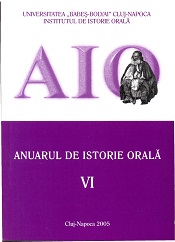ACURATEŢEA ÎN MEMORIA AUTOBIOGRAFICĂ
ACCURACY IN AUTOBIOGRAPHICAL MEMORY
Author(s): Constantin TicuSubject(s): History
Published by: Argonaut
Summary/Abstract: Most researchers in the field of memory agree about the fact that our capacity for recollection is far from being infallible, that with the passing of time we tend to forget many details of certain events and even the events as such, that we can integrate false information in our memories, but still report them with the utmost conviction of their authenticity. Memory does not accomplish a „photographical” preservation of all aspects of reality. It is mainly a reconstruction process in which recollections of past events result out of a blending of both the facts concerning the original incident as well as out of fragments of accounts, prior knowledge, beliefs, expectations, etc. The accuracy of recollections can be influenced both at the time of the assimilation of information as well as during the phases of preservation and recollection of the information stored by the memory. At the very moment of assimilation of the information, the exceptionally intense experiencing of events can induce the alteration of the cognitive pattern of the event leading to dissociation, the disorganization of the perceptive processes and the deficient, fragmentary imprinting of the information without a coherent narrative structure. During the preservation or the recollection of information phase a series of factors can intervene and alter the quality of the recollections, enabling the possibility of their oblivion (unused information which is not updated is lost in time) as well as the necessary premises for the insertion of false information alongside the information of the original episode stored in our memory. During the phase of recollection of the facts belonging to their personal past, people tend to extract selectively certain information or to interpret this information in a particular manner, in consonance with their current self-image or interests. The present article takes into account all of these aspects and the final conclusion that can be drawn is that, despite the existence of so many sources of distortion of data, our memory is ultimately trustworthy. This is due to the fact that the distortions of memory do not occur as frequently as one may assume and moreover, they do not but rarely influence important data belonging to our personal past. Accounts about the past are reliable as long as they are made with honesty and as long as we pay attention to the various sources of distortion that can interfere both at the moment of assimilation of information as well as during their preservation and recollection as personal or historical evidence.
Journal: Anuarul Institutului de Istorie Orală
- Issue Year: 2005
- Issue No: VI
- Page Range: 19-45
- Page Count: 27
- Language: Romanian

